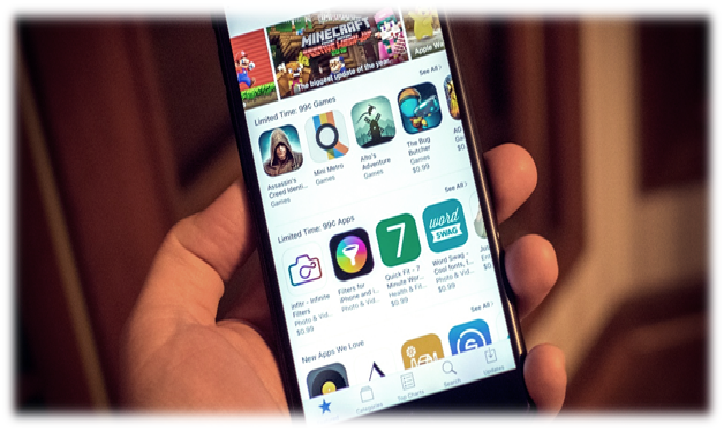The entry barriers to market participation in the “app business” are low. At the same time, the prospects of almost free access to the global distribution network of the various app stores are causing a lot of dreams.
But the gold rush mood is long gone – 80% of the developed apps do not even play the development costs (see getting rich with app programming?).
Reason enough, systematically from the first flash of inspiration to the upload to the App Store, to consider what factors are required for a successful app.
Analysis of competing apps
As close as it may seem to first search the app stores for apps that offer the same benefits, so gladly this step is skipped – after nearly 2000 processed requests in the app developer directory, we know what we’re talking about.
It is only reluctant to confront your own idea with the harsh reality and the (unconscious?) Fear that someone might have come before you quickly forces this important step out of the field of view.
So the first step is to take a deep breath and search for apps that already have what you want to create. Try to evaluate competing apps objectively and not just look for weaknesses that make your product superior anyway.
Consider coolly whether, considering the offer on the market, another app satisfies a need from the consumer’s point of view. This can be assumed, if there is either no corresponding app, or competing apps with less than four stars are not rated very well.
Use the effort and compare other apps on the market systematically, for example by means of a table, in which you break them down by usability, design, features, etc. rate. This information will be very useful as the app continues to build.
Only if you are sure that there are no or only inadequate apps with your intended functionalities, you should take the next step.
Unique selling point
Developers tend to produce “features”. Do you know this sparkle in the eyes of programmers when you’ve hit the creative vein?
Then phrases also often phrases like: “and then you could install a feature that geo targeting the user shows the relative distance to the next [geeky object here] and via push messages on the smartphone and the Facebook API [etc.] … “
In general, apps are successful if you have a “unique selling point”, i.e. offer a benefit that no one else has. If you manage to explain the purpose in a straightforward way even to inexperienced people in two sentences, you have a good chance that your app will be used.
Better, you only need one sentence. If you realize that you need your fingers to enumerate features, there is a high risk that the app will not have any original benefits.
Only perfect is good enough
The ability to upload a ready-made app to the app stores without the hassle of being able to update at any time, subjectively reduces the need for perfection.
One is more inclined to accept an undiscovered bug and for that (in front of all others who are developing the same idea right now) to publish the app as soon as possible.
However, the danger is very high that it hails bad reviews. Crashes infuriate customers, especially with paid apps, and motivate tremendously to vent the frustration with negative comments or at least a bad rating.
You should therefore thoroughly test the app for as representative a set of devices and operating system combinations as possible to eliminate bugs.
Make use of App Testing Services to have your app tested not only by your developers, but also by external and industry-specific users (see e.g. the App Testing Service here in AEV).
App marketing
Have you never seen the word “App Marketing” written before? That’s probably because it has hardly been written about it so far. In the “offline” world there is an (unofficial) “1 to 2” rule: If you have a developer, you should have at least two salespeople selling the product.
For a long time there was a provider market on the young app market – the customer basically devoured everything that was offered. Today, however, there are already apps that meet these requirements for virtually every conceivable requirement.
It becomes all the more important to professionally communicate the benefits of the app, which we hope has already been outlined with sufficient clarity in step 2.
Timing of marketing on release
All Appstores work on the same principle: “hot apps”, i.e. those that are frequently viewed and downloaded, are ranked better in the App Stores.
If in a concerted action, one’s own app in a category on one of the first (10) places to heave, not only brings immediate download numbers, but it also causes the app to have a good chance, due to the keep high downloads on the first page of results.
Therefore, not only cross-media marketing, but a timely exact coordination of all measures is decisive. Make sure that online and offline campaigns have the greatest impact at the same time, increasing your chances of getting into a top list that guarantees the success of the app.
In conclusion
The app market has grown up – accordingly can be programmed only with some professionalism, an economically successful app.
The span of knowledge and skills is no longer just code writing, but includes project management, market analysis, quality management and marketing. As low as the entry barriers were, they are only at first sight.










